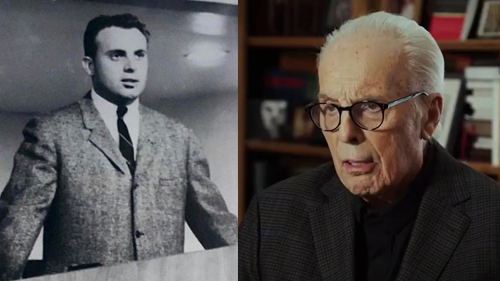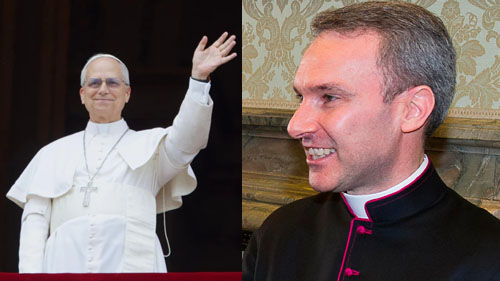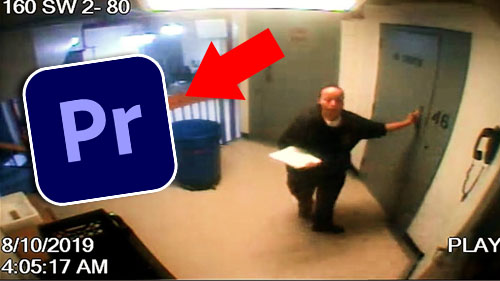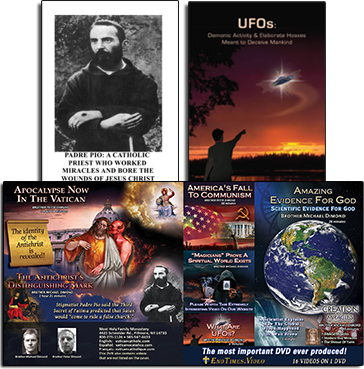July 27, 2005
Alexandru, let me ask you a question: is a Christian, according to you, bound to believe in the declarations of the Council of Nicaea, so that if he would refuse he would cease to be a Christian?
If so, why is he bound to believe in its declarations? If you say that it is because "the Church accepted it," please tell me what specific criteria determines that “the Church accepted it,” and by what criteria do you say that the Church did not accept the many other Councils that were held with Bishops in the first millennium?
Sincerely,
Bro. Peter Dimond
The Eastern Schismatic never responded, simply because the Eastern Schismatics have no response.
If the Popes don’t possess supreme authority in the Church – which is something clearly instituted by Christ in St. Peter (see Mt. 16:18-20; John 21:15-17; Luke 22:31-32) – but the Bishop of Rome is simply a Bishop who is “first among equals” with all the other Bishops in the Church (as the schismatics say), then there is no way to differentiate between the true Councils and the many robbers’ synods of the early Church. This is because there were many false and heretical Councils in the early Church which were approved by a similar number of Bishops as were present at, for instance, the First Council of Constantinople. The notoriously false Council of Ephesus II, which most Eastern Schismatics would reject, had about as many Bishops as the First Council of Constantinople (which the “Orthodox” schismatics would demand that people accept). What is the difference between the two? If the Papal confirmation is not the essential characteristic, then how can one say that the Church absolutely accepted Constantinople I and absolutely rejected Ephesus II? The answer is that the schismatic cannot say so definitively; but the Catholic can. The Catholic knows that the difference between the two is the Papal confirmation, but the Eastern Schismatics cannot logically say that a Christian must absolutely believe in Constantinople I, but not in Ephesus II, since they were both approved by Bishops.
It is true to say that the Eastern Schismatics, such as Alexandru, cannot logically and consistently assert that THE EARLY GENERAL COUNCILS ARE DOGMAS THAT MUST BE ACCEPTED (even though they would try to claim otherwise); for if a “Christian” decides that he will follow Ephesus II instead – and the bishops who approved it – there is nothing the Eastern Schismatic could say to refute him, since it is just one Bishop against another without any Bishop possessing supreme authority in the Church. This simply shows us that, besides rejecting what Christ clearly instituted in St. Peter, Eastern “Orthodoxy” is completely illogical and self-refuting.
July 11, 2005[Before I comment on your letter, I want to make it clear for those who may be new to these issues that we are not defending the Second Vatican Council. Vatican II was a totally heretical, wicked, false, invalid Council which endorsed false religions such as Islam, Buddhism and Hinduism and taught many other heresies against the Catholic Faith. What we are discussing and pointing out here, however, is that one cannot reject that false Council (as every Catholic should) while he accepts as a true Pope the man who imposed it, Paul VI. Either one accepts Paul VI and Vatican II or rejects them both. So here we are discussing the ways by which “traditionalists” attempt to be able to reject Vatican II and its heresies while accepting the complete apostate Antipope Paul VI as a Pope.]
Regarding your first point, that John XXIII’s statement at the opening speech of Vatican II proves that it is not infallible, this is simply not true. John XXIII did not say in his opening speech at the Council that Vatican II was to be a pastoral council. Here is what John XXIII actually said:
John XXIII, Opening Speech at Vatican II, Oct. 11, 1962: “The substance of the ancient deposit of faith is one thing, and the way in which it is presented is another. And it is the latter that must be taken into great consideration with patience if necessary, everything being measured in the forms and proportions OF A MAGISTERIUM WHICH IS PREDOMINANTLY PASTORAL IN CHARACTER.”
Here we see that John XXIII did not say that Vatican II would be a pastoral council. He said that it would reflect the Church’s Magisterium, which is predominantly pastoral in character. So, despite the incredibly widespread myth, the truth is that John XXIII never even called Vatican II a pastoral council in his opening speech. By the way, even if John XXIII had called Vatican II a pastoral council in his opening speech this wouldn’t mean that it is not infallible. To describe something as pastoral does not mean
ipso facto (by that very fact) that it’s not infallible. This is proven by John XXIII himself in the above speech when he described the Magisterium as “pastoral,” and yet it’s
de fide (of the faith) that the Magisterium is infallible. Therefore, even if John XXIII did describe Vatican II as a pastoral council (which he did not) this would not prove that it is not infallible.
Most importantly, however, the fact that John XXIII
did not actually call Vatican II a pastoral council in his opening speech at Vatican II does not actually matter.
This is because it was Paul VI who solemnly confirmed the heresies of Vatican II; and it is Paul VI’s confirmation (not John XXIII’s) which proves that Vatican II is binding upon those who accept him.
EACH ONE OF THE 16 DOCUMENTS OF V-2 ENDS WITH THESE WORDS:
“EACH AND EVERY ONE OF THE THINGS SET FORTH IN THIS DECREE HAS WON THE CONSENT OF THE FATHERS. WE, TOO, BY THE APOSTOLIC AUTHORITY CONFERRED ON US BY CHRIST, JOIN WITH THE VENERABLE FATHERS IN APPROVING, DECREEING, AND ESTABLISHING THESE THINGS IN THE HOLY SPIRIT, AND WE DIRECT THAT WHAT HAS THUS BEEN ENACTED IN SYNOD BE PUBLISHED TO GOD’S GLORY... I, PAUL, BISHOP OF THE CATHOLIC CHURCH.”
This is absolutely infallible and binding language. There is no doubt about it. And this is why your new “Pope,” as head of the Congregation for the Doctrine of the Faith, stated the following:
“Cardinal” Joseph Ratzinger, The Ratzinger Report, 1985, p. 28: “It is impossible (‘for a Catholic’) to take a position for Vatican II but against Trent or Vatican I. Whoever accepts Vatican II, as it has clearly expressed and understood itself, at the same time accepts the whole binding tradition of the Catholic Church, particularly also the previous two councils. And that also applies to the so-called ‘progressivism’, at least in its extreme forms. It is likewise impossible to decide in favor of Trent and Vatican I, but against Vatican II. Whoever denies Vatican II denies the authority that upholds the other two councils and thereby detaches them from their foundation. And this applies to the so-called ‘traditionalism’, also in its extreme forms.”
This is a very important quotation that proves a very important point. In fact, one almost couldn’t ask for a better quote confirming the conclusion of our article
Was Vatican II infallible?.
Ratzinger is confirming that, if Antipope Paul VI was a Pope, Vatican II is an ecumenical Council that must be accepted just as Trent and Vatican I. So, either you accept Vatican II and: its endorsement of Buddhism, Hinduism, Islam; its teaching that non-Catholics can receive Communion; its heretical teaching on religious liberty; etc; or, as a Catholic must, you reject these heresies and correctly conclude that the obviously evil infiltrator - the ephod wearing Paul VI – was not a true Pope since he was a heretic at the time of the election. It is completely illogical, anti-Catholic, anti-Magisterial and inconsistent for one, once he is aware of these facts, to insist that the Vatican II Antipopes are true Popes while he rejects the Council they have authoritatively imposed with the fullness of their “apostolic authority.” That is why Ratzinger, in the same book, while addressing the position of Lefebvre (the position of the SSPX), correctly points out that it is illogical:
“Cardinal” Joseph Ratzinger interviewed by Vittorio Messori, The Ratzinger Report, 1985, p. 31: “[Messori, the interviewer, notes:] Although critical of the ‘left’, Ratzinger also exhibits an unmistakable severity toward the ‘right’, toward that integralist traditionalism quintessentially symbolized by the old Archbishop Marcel Lefebvre. In reference to it, he [Ratzinger] told me: [Ratzinger’s answer] ‘I see no future for a position that, out of principle, stubbornly renounces Vatican II. In fact in itself it is an illogical position. The point of departure for this tendency is, in fact, the strictest fidelity to the teaching particularly of Pius IX and Pius X and, still more fundamentally, of Vatican I and its definition of papal primacy. But why only the popes up to Pius XII and beyond? Is perhaps obedience to the Holy See divisible according to years or according to the nearness of a teaching to one’s own already-established convictions?”
People need to stop the nonsense. People need to stop asserting the false position (that people can reject Vatican II while accepting Paul VI), which contradicts Papal Infallibility and keeps people under the authority of invalid Antipopes.
Antipope Paul VI, “Papal” Brief declaring Council Closed, Dec. 8, 1965: “At last all which regards the holy Ecumenical Council has, with the help of God, been accomplished and ALL THE CONSTITUTIONS, DECREES, DECLARATIONS, AND VOTES HAVE BEEN APPROVED BY THE DELIBERATION OF THE SYNOD AND PROMULGATED BY US. Therefore, we decided to close for all intents and purposes, WITH OUR APOSTOLIC AUTHORITY, this same Ecumenical Council called by our predecessor, Pope John XXIII, which opened October 11, 1962, and which was continued by us after his death. WE DECIDE MOREOVER THAT ALL THAT HAS BEEN ESTABLISHED SYNODALLY IS TO BE RELIGIOUSLY OBSERVED BY ALL THE FAITHFUL, for the glory of God and the dignity of the Church… WE HAVE APPROVED AND ESTABLISHED THESE THINGS, DECREEING THAT THE PRESENT LETTERS ARE AND REMAIN STABLE AND VALID, AND ARE TO HAVE LEGAL EFFECTIVENESS, so that they be disseminated and obtain full and complete effect, and so that they may be fully convalidated by those whom they concern or may concern now and in the future; and so that, as it be judged and described, ALL EFFORTS CONTRARY TO THESE THINGS BY WHOEVER OR WHATEVER AUTHORITY, KNOWINGLY OR IN IGNORANCE, BE INVALID AND WORTHLESS FROM NOW ON. Given at Rome, at St. Peter’s, under the [seal of the] ring of the fisherman, December 8… the year 1965, the third year of our Pontificate.”










 " />
" /> " />
" /> " />
" /> " />
" /> " />
" />





